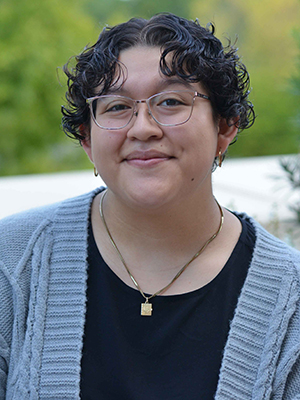Harrison College of Pharmacy student-pharmacists and graduate students have access to counseling and psychological services when they feel they need assistance.
Hailie Suarez-Rivas is a second-year doctoral student in the Clinical Psychology Ph.D. program at Auburn University. She earned a Bachelor of Science in Psychology and Criminology at Virginia Commonwealth University. Throughout her time at Auburn, she has been involved in research pertaining to interpersonal violence survivors and how these survivors interact with formal systems (e.g., law enforcement, healthcare systems).
Hailie is located in the Auburn University Psychological Services Center (AUPSC) in Cary Hall and is available Mondays, Tuesdays, and Wednesdays (by appointment). She also provides telehealth services to students outside of the Auburn/Opelika area but still within Alabama (e.g. students located on the Mobile campus or on rotation).
She can be reached via email at harrpsc@auburn.edu. Services are completely free and there are no limits to the number of sessions provided.
Please note that this e-mail account is not checked on weekends, university holidays, or clinic closures. For urgent assistance please call Student Counseling Services at 334-844-5123, the National Suicide Prevention Lifeline at 800-273-8255, or 911.

Doctoral Candidate, Auburn Department of Psychology
Graduate Clinician, AUPSC and HCOP
Email: harrpsc@auburn.edu
Students in Mobile may contact the clinician listed above for a telehealth appointment, but also have access to University of South Alabama’s Counseling and Testing Services. To schedule an appointment, call 251-460-7051 or visit www.southalabama.edu/departments/counseling/. For other resources in Mobile visit www.southalabama.edu/departments/counseling/mhemergencies.html.
The Auburn University Psychological Services Center – Harrison College of Pharmacy branch is excited to share a mental health workshop about stress management.
In this 35-minute workshop, an experienced doctoral candidate in clinical psychology will guide you through common sources and signs of stress, as well as empirically derived skills that target your thoughts, feelings, and behaviors, with the goal of reducing stress-related anxiety, depression, and academic burnout.